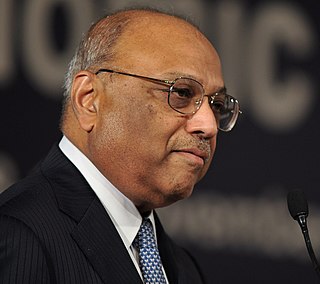A Quote by Barton Gellman
I doubt there's any government in the world that guides itself primarily by strategy or conceptual documents or worldview. Anybody who has the reins of power has to look at practical limitations and tradeoffs - the fact that you can focus at most on one or two things at a time, that resources are limited.
Related Quotes
My supporters and family have limited resources, very limited resources; but the FBI has the unlimited resources of the most powerful government in the world today. It's amazing that they haven't successfully had me assassinated since I have been in here. There have been plots uncovered in the past that I know of to have me killed.
Long before the technology revolution there was declassification of documents and I've spent quite a lot of time studying declassified internal documents and written a lot about them. In fact, anybody who's worked through the declassified record can see very clearly that the reason for classification is very rarely to protect the state or the society from enemies. Most of the time it is to protect the state from its citizens, so they don't know what the government is doing.
I've spent a lot of time working on declassified documents - and they do get declassified after decades - you look at the record of declassified documents, and they are mostly concerned with keeping what the government does secret from its own population. It's mostly defense of the power system from its own population. Very little is authentic security.
The opportunities and threats existing in any situation always exceed the resources needed to exploit the opportunities or avoid the threats. Thus, strategy is essentially a problem of allocating resources. If strategy is to be successful, it must allocate superior resources against a decisive opportunity.
The real problem is that "limited government" invariably leads to unlimited government. If history is to be any guide and current experience is to be any guide, we in the United States 200 years ago started out with the notion of limited government - virtually no government interference - and we now have a massive quasi-totalitarian government.
When it comes to the mental world, when we design things like health care and retirement and stock markets, we somehow forget the idea that we are limited. I think that if we understood our cognitive limitations in the same way that we understand our physical limitations … we could design a better world.
Don’t try to change someone’s worldview is the strategy smart marketers follow. Don’t try to use facts to prove your case and to insist that people change their biases. You don’t have enough time and you don’t have enough money. Instead, identify a population with a certain worldview, frame your story in terms of that worldview and you win.
The Beijing Olympics were an exercise in Chinese soft power. Americans have the 'Voice of America' and the Fulbright scholarships. But, the fact is, in fact, that probably Hollywood and MTV and McDonalds have done more for American soft power around the world than any specifically government activity.
I hide my documents in many different places on my computer, because I often write things that I would never want anybody to read, at least unedited, and I'm paranoid that someone might figure out what the password to my computer is and maliciously read my Word documents. So a lot of the time I lose things I've written and/or completely forget about them.
The strategy of semantic ascent is that it carries the discussion into a domain where both parties are better agreed on the objects (viz., words) and on the main terms connecting them. Words, or their inscriptions, unlike points, miles, classes and the rest, are tangible objects of the size so popular in the marketplace, where men of unlike conceptual schemes communicate at their best. The strategy is one of ascending to a common part of two fundamentally disparate conceptual schemes, the better to discuss the disparate foundations. No wonder it helps in philosophy.































